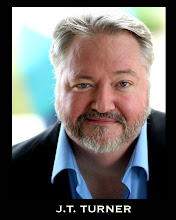 A popular topic here in Advice to the Player is Memory. It is such a critical skill for an actor, dancer, singer, speaker. Today we will chat about dealing with a list, this info could naturally be used in other ways as well.
A popular topic here in Advice to the Player is Memory. It is such a critical skill for an actor, dancer, singer, speaker. Today we will chat about dealing with a list, this info could naturally be used in other ways as well.Many times as a performer you will encounter a list. A character will have a list of 2-3 ways they feel about someone, or a role requires you to rattle of the 10 places your character has lived, or a song has 4 verses about different men the singer has been involved with.
Here is a bit of advice about the dreaded list. I have some experience with this, as I preform A Christmas Carol every year. No one is like Dickens for lists, "cold, bleak, biting weather, foggy withall...." " froze his old features, turned his eyes red, his thin lips blue, stiffened his gait..", "
Heaped up on the floor, to form a kind of throne, were turkeys, geese, game, poultry, brawn, great joints of meat, sucking-pigs, long wreaths of sausages, mince-pies, plum-puddings, barrels of oysters, red-hot chestnuts, cherry-cheeked apples, juicy oranges, luscious pears, immense twelfth-cakes, and seething bowls of punch, that made the chamber dim with their delicious steam. "
get the idea.As with any memorization, a good key is that most of us memorize best if we can visualize something. And the madder, crazier the imagery, the easier it is to remember.Recently I worked with a private student on a monolog that included a list of guests at a wedding party, a long silly list. It included people like: the minister, ministers wife, the photographer, the photographer's daughter, an oceanographer, 2 blue whales, the hostess and an old lady. Now your brain can hold about 7 items in short term memory, so this is not an impossible list, it is just a bit daunting if its part of a 3 minute speech. So to help put and keep it in the memory, I told the student to clearly visualize the list. I had her picture a reception line at a wedding, and clearly see herself walking up to each person. First a minister in full robes and collar. Picture the minister shaking your hand, and introducing you to a woman standing next to him, also dressed as a minister. Next is a photographer with dozens of camera's hanging around their neck, taking photos of you, and next is a little girl, 5-6 years old, also with tons of cameras and taking your picture.This sets in your mind the photographer and daughter.
 Standing next to the little girl is a scuba diver complete with wetsuit, tanks and mask, and then 2 blue whales standing on their fins looking tall and regal. Next is a hostess, so I see a Hostess Twinkee in a expensive dress you might see at a wedding, and finally an old lady, stooped over, holding onto a walker. See each clearly, imagine yourself going down the line. Suddenly an impossible list becomes so much easier.
Standing next to the little girl is a scuba diver complete with wetsuit, tanks and mask, and then 2 blue whales standing on their fins looking tall and regal. Next is a hostess, so I see a Hostess Twinkee in a expensive dress you might see at a wedding, and finally an old lady, stooped over, holding onto a walker. See each clearly, imagine yourself going down the line. Suddenly an impossible list becomes so much easier.
Another easy trick we can use is letters. Sometime we get stuck on a certain phrase. For example, in a seminar I teach, I wanted students to remember the words, "things hardly ever go as planned". To make sure it stayed in their minds, I used the phrase THE GAP. Silly, but it used the letters from the words I wanted them to remember.
So when next confronted with a list, try to make the items large, silly and memorable. Practice on items you need from a certain store, or a list of things you need to do in a day. You will find it words better than just repetition, though of course repetition helps!
J.T. Turner
The Actor's Sensei
Private and group lessons available





 By speaking the words, we physically become familar with mouthing them, and we hear them audibly in our own resonating head and body. You may have heard or read about a person saying they were "surprised by the sound of thier own voice". That should never be an actor. A critical part of preparation has to be the speaking of the lines into the air. It also gives us an opportunity to play with the words, what can we emphasize, what can we deliver louder, or softer? When creating a part, words are the very brick and mortor that your character must be built around.
By speaking the words, we physically become familar with mouthing them, and we hear them audibly in our own resonating head and body. You may have heard or read about a person saying they were "surprised by the sound of thier own voice". That should never be an actor. A critical part of preparation has to be the speaking of the lines into the air. It also gives us an opportunity to play with the words, what can we emphasize, what can we deliver louder, or softer? When creating a part, words are the very brick and mortor that your character must be built around.





 Mark's dad, John, is a director, and attended several of those shows, and in chats with him about directing, (I had just started my theater company, moonlight productions), he gave me several tips I use to this day.
Mark's dad, John, is a director, and attended several of those shows, and in chats with him about directing, (I had just started my theater company, moonlight productions), he gave me several tips I use to this day.
 Todays blog is about a popular topic, auditioning. And I especially want to aim todays blog to younger actors as they pick audition pieces.
Todays blog is about a popular topic, auditioning. And I especially want to aim todays blog to younger actors as they pick audition pieces.

 So this Blogs advice is to do your homework, and keep a performing diary. It will make your journey fuller and more rewarding. Because if it isn't fun, why bother?
So this Blogs advice is to do your homework, and keep a performing diary. It will make your journey fuller and more rewarding. Because if it isn't fun, why bother?


